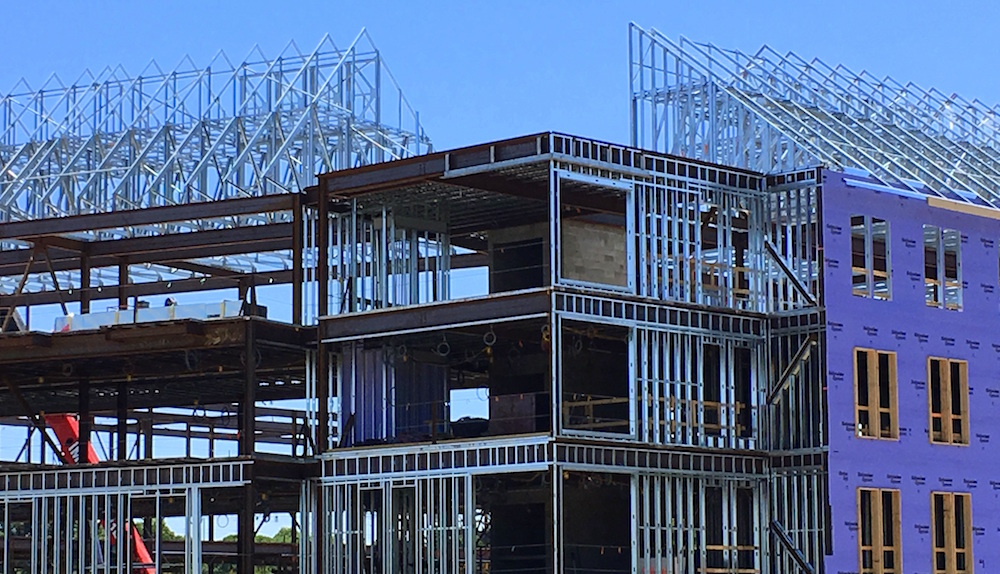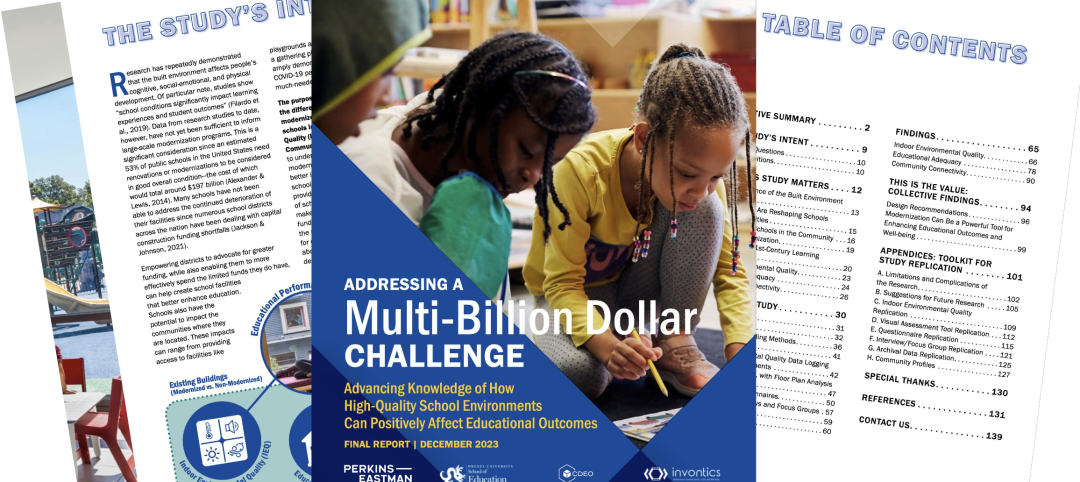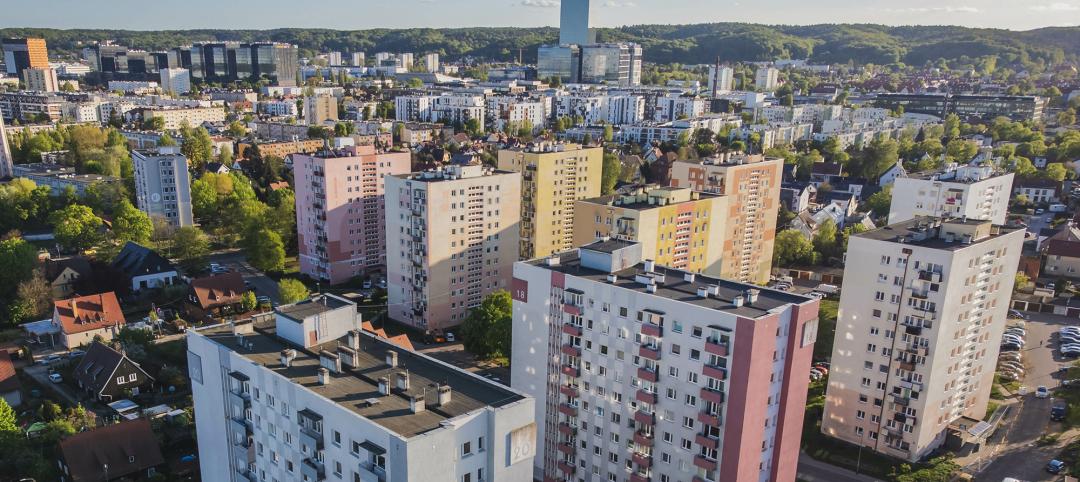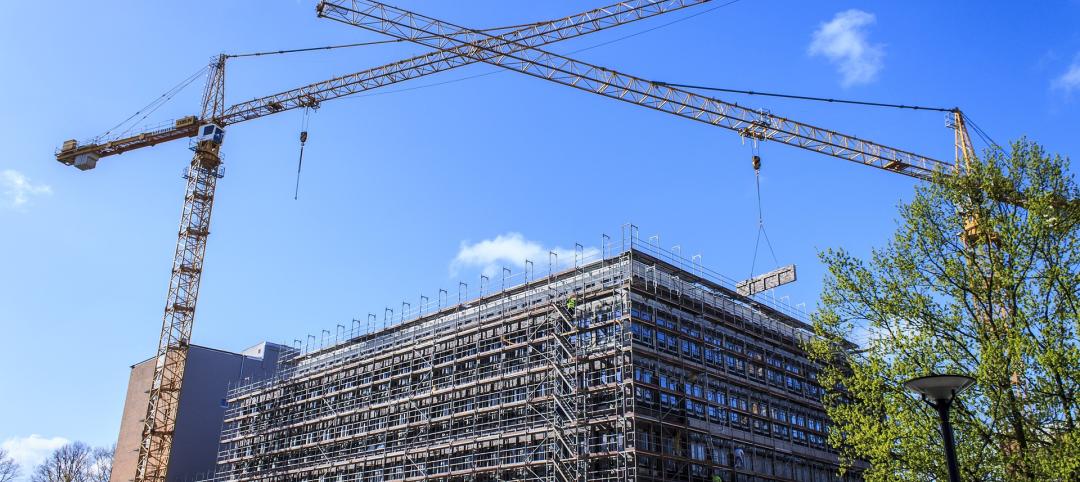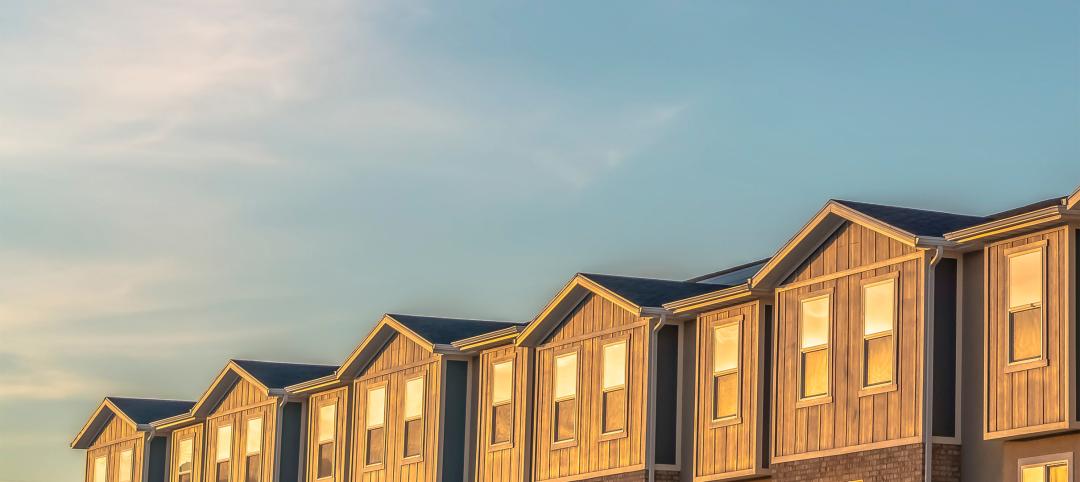Real gross domestic product (GDP) expanded 1.2% (seasonally adjusted annual rate) during 2016’s second quarter according to according to an analysis of Bureau of Economic Analysis data released by Associated Builders and Contractors (ABC).
This modest figure follows a 0.8% annualized rate of output growth registered during the year’s first quarter.
Nonresidential fixed investment, a category closely tied to construction and other forms of business investment, fell for a third consecutive quarter, slipping 2.2% from the first quarter, with investment in structures declining 7.9%. Residential investment fell for the first time since the first quarter of 2014. Nonresidential investment in equipment fell 3.5% for the quarter, while nonresidential fixed investment in intellectual property expanded 3.5% and has now expanded for 12 consecutive quarters.
“Construction industry stakeholders should not have been anticipating a solid GDP report given previous weak construction spending and employment numbers that were recently released and they did not get one,” said Anirban Basu, ABC’s chief economist. “Today’s report suggests that construction activity has stalled a bit more than thought, largely due to slowing residential investment growth and low levels of public sector investment. With apartment rents no longer rising in a number of markets, the nation’s apartment building boom has taken a bit of a pause.
“Only those who sell directly to consumers and certain technology firms are likely to glean some sense of satisfaction from today’s release,” said Basu. “The balance of the economy continues to disappoint, though the lack of inventory building during the second quarter may help position the economy for a bounce-back during the third. It will be interesting to see if ABC’s Construction Backlog Indicator begins to show that average nonresidential construction firm backlog is now in decline, though many contractors continue to indicate that they remain busy due to previously secured work.
“It should be noted that the 7.9% decline in spending on structures during the second quarter transpired despite some very positive economic circumstances,” said Basu. “For instance, interest rates remain shockingly low, foreign investment continues to pour into U.S. commercial real estate, and there are positive wealth effects being generated by both housing and equity markets. However, it appears that even these conditions are no longer enough to support growing demand for construction spending. One could theorize that uncertainty originating from the current presidential election cycle is partially responsible.”
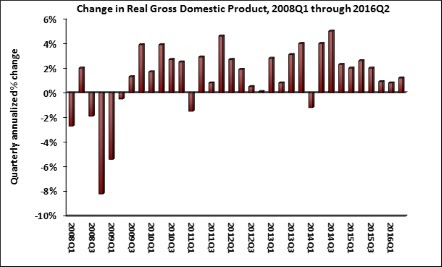
The following highlights emerged from today’s second quarter GDP release. All growth figures are seasonally adjusted annual rates:
- Personal consumption expenditures expanded 4.2% on an annualized basis during the second quarter of 2016 after growing 1.6% during the first quarter of 2016.
- Spending on goods rose 6.8% during the first quarter after expanding by 1.2% during the previous quarter.
- Real final sales of domestically produced output increased 2.4% in the second quarter after increasing 1.2% in the first.
- Federal government spending inched down by 0.2% in the year’s second quarter after contracting 1.5% in the first quarter of 2016.
- Nondefense government spending increased by 3.9% for the quarter following an increase of 0.9% in the first.
- National defense spending fell by 3% during the second quarter after registering a 3.2% decline in the previous quarter.
- State and local government spending fell by 1.3% in the second quarter after expanding 3.5% in the first quarter.
Related Stories
Retail Centers | Apr 4, 2024
Retail design trends: Consumers are looking for wellness in where they shop
Consumers are making lifestyle choices with wellness in mind, which ignites in them a feeling of purpose and a sense of motivation. That’s the conclusion that the architecture and design firm MG2 draws from a survey of 1,182 U.S. adult consumers the firm conducted last December about retail design and what consumers want in healthier shopping experiences.
Market Data | Apr 1, 2024
Nonresidential construction spending dips 1.0% in February, reaches $1.179 trillion
National nonresidential construction spending declined 1.0% in February, according to an Associated Builders and Contractors analysis of data published today by the U.S. Census Bureau. On a seasonally adjusted annualized basis, nonresidential spending totaled $1.179 trillion.
Market Data | Mar 26, 2024
Architecture firm billings see modest easing in February
Architecture firm billings continued to decline in February, with an AIA/Deltek Architecture Billings Index (ABI) score of 49.5 for the month. However, February’s score marks the most modest easing in billings since July 2023 and suggests that the recent slowdown may be receding.
K-12 Schools | Mar 18, 2024
New study shows connections between K-12 school modernizations, improved test scores, graduation rates
Conducted by Drexel University in conjunction with Perkins Eastman, the research study reveals K-12 school modernizations significantly impact key educational indicators, including test scores, graduation rates, and enrollment over time.
MFPRO+ News | Mar 16, 2024
Multifamily rents stable heading into spring 2024
National asking multifamily rents posted their first increase in over seven months in February. The average U.S. asking rent rose $1 to $1,713 in February 2024, up 0.6% year-over-year.
Market Data | Mar 14, 2024
Download BD+C's March 2024 Market Intelligence Report
U.S. construction spending on buildings-related work rose 1.4% in January, but project teams continue to face headwinds related to inflation, interest rates, and supply chain issues, according to Building Design+Construction's March 2024 Market Intelligence Report (free PDF download).
Contractors | Mar 12, 2024
The average U.S. contractor has 8.1 months worth of construction work in the pipeline, as of February 2024
Associated Builders and Contractors reported that its Construction Backlog Indicator declined to 8.1 months in February, according to an ABC member survey conducted Feb. 20 to March 5. The reading is down 1.1 months from February 2023.
Market Data | Mar 6, 2024
Nonresidential construction spending slips 0.4% in January
National nonresidential construction spending decreased 0.4% in January, according to an Associated Builders and Contractors analysis of data published today by the U.S. Census Bureau. On a seasonally adjusted annualized basis, nonresidential spending totaled $1.190 trillion.
Multifamily Housing | Mar 4, 2024
Single-family rentals continue to grow in BTR communities
Single-family rentals are continuing to grow in built-to-rent communities. Both rent and occupancy growth have been strong in recent months while remaining a financially viable option for renters.
MFPRO+ News | Mar 2, 2024
Job gains boost Yardi Matrix National Rent Forecast for 2024
Multifamily asking rents broke the five-month streak of sequential average declines in January, rising 0.07 percent, shows a new special report from Yardi Matrix.


